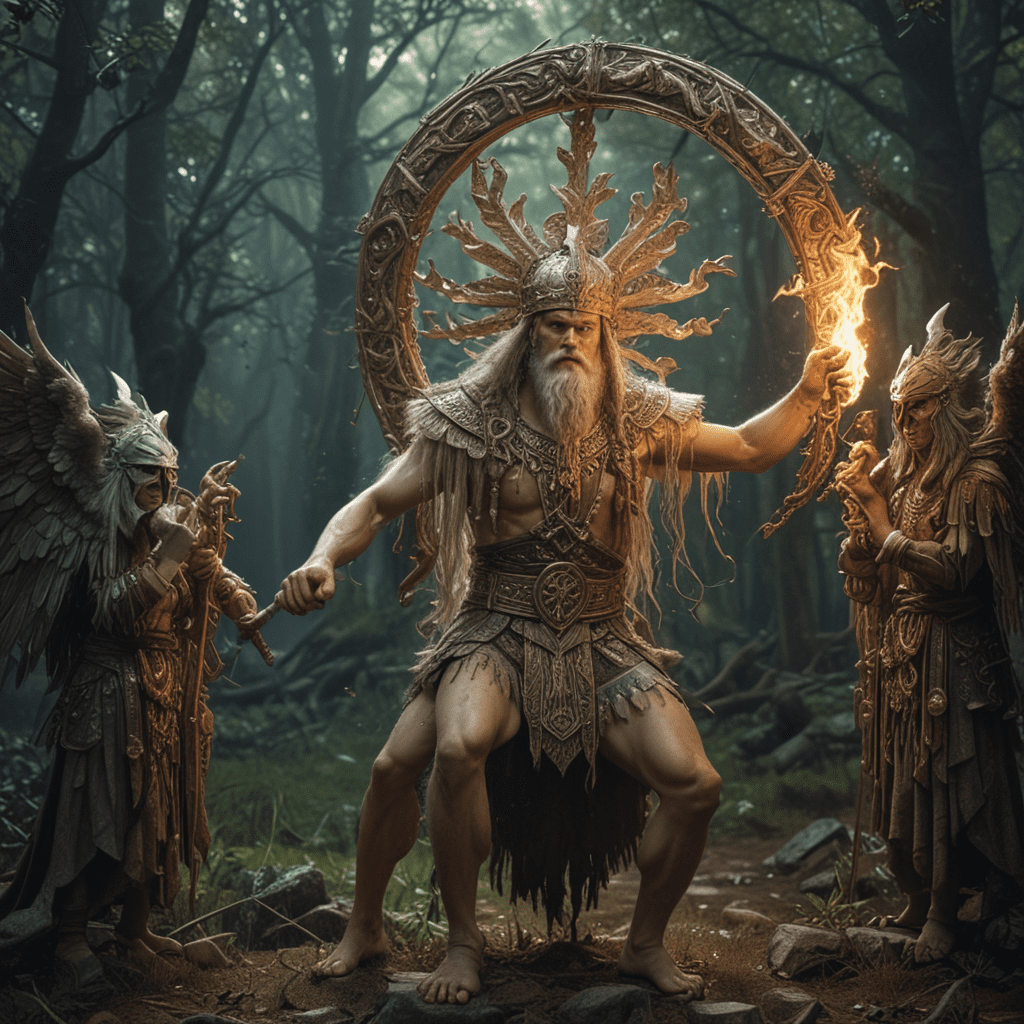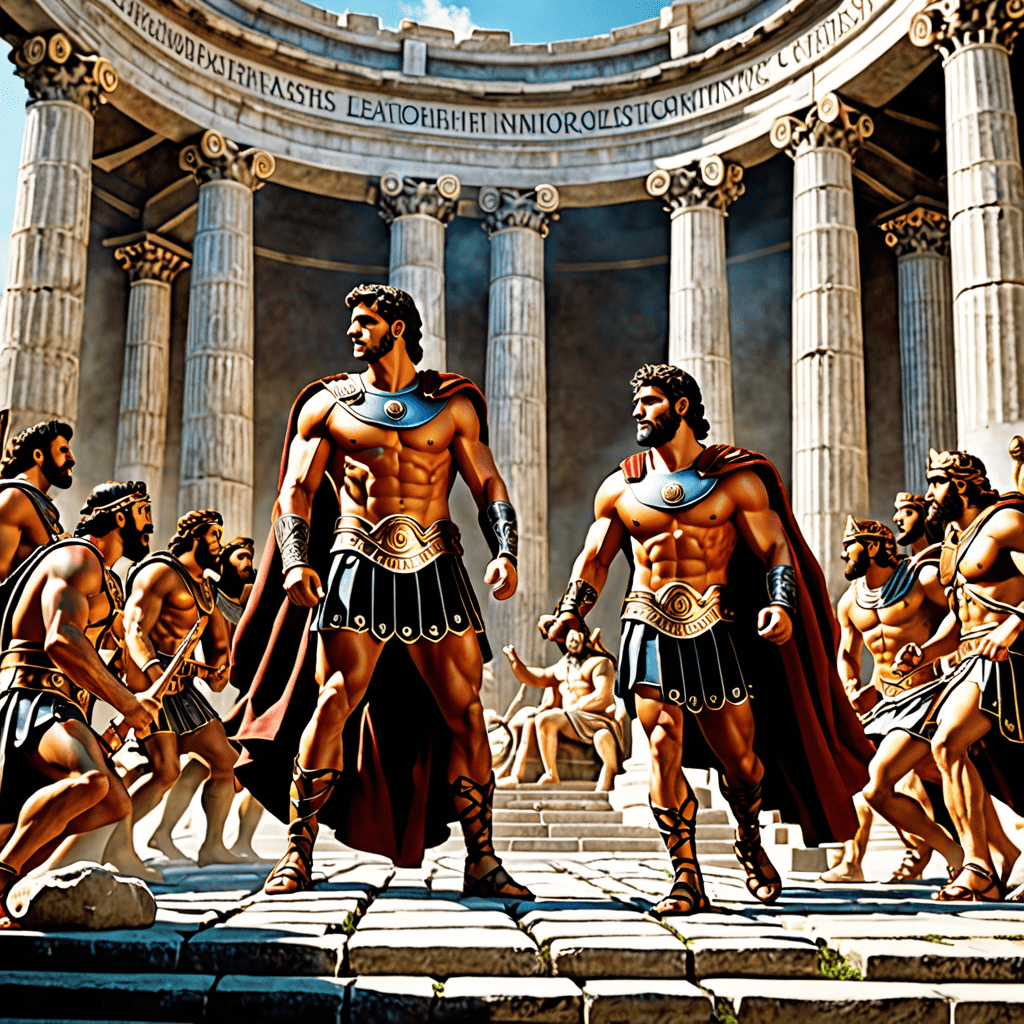Mythical Matchmakers: How Fate Brought Lovers Together
1. Introduction to Mythical Matchmaking
Throughout history, cultures around the world have embraced the concept of mythical matchmakers—figures believed to influence romantic unions through fate and divine intervention. These enchanting characters often represent the intersection of love and destiny, guiding lovers toward one another in ways that seem beyond mere coincidence. From ancient tales to modern storytelling, the idea that fate plays a crucial role in love stories continues to captivate our imaginations.
2. The Role of Fate in Love: An Ancient Belief
Fate has been a significant theme in the realm of relationships since ancient times. Many cultures have woven the concept of destiny into their understanding of love, suggesting that certain connections are preordained. In Greek and Roman mythology, for instance, the Fates—three sisters named Clotho, Lachesis, and Atropos—were believed to control the threads of life, including romantic destinies.
In these mythologies, fate is not just a passive force but an active participant in shaping relationships. The ancient Greeks viewed love as something that could be both influenced and dictated by fate, leading to profound tales of romance and tragedy.
3. Iconic Mythical Matchmakers: Cupid and Eros
Cupid, the Roman god of desire, love, and affection, is perhaps the most recognized mythical matchmaker in Western culture. Often depicted as a cherubic figure armed with a bow and arrows, Cupid’s role is to strike individuals with love—sometimes unpredictably. His origins can be traced back to the Greek god Eros, who represented not only romantic love but also the chaotic and uncontrollable nature of desire.
Eros was often portrayed as a powerful force that could compel even the most unlikely individuals to fall in love. His stories, such as the famous myth of Eros and Psyche, highlight the transformative power of love and its capacity to transcend obstacles, further emphasizing the significant role that fate plays in romantic relationships.
4. Beyond Cupid: Lesser-Known Matchmakers in Myth
While Cupid and Eros are the most famous matchmakers, many other mythical figures have played significant roles in bringing lovers together. Some notable examples include:
- Aphrodite: The Greek goddess of love and beauty, often involved in the affairs of mortals, guiding them toward love.
- Parvati: In Hindu mythology, Parvati is an essential figure in uniting lovers, particularly through her marriage to Shiva, which symbolizes the balance of love and devotion.
- Hecate: In some traditions, Hecate acts as a guide for lovers, helping them navigate the complexities of their relationships.
These figures illustrate that the theme of matchmaking transcends individual cultures, showcasing the universal belief in love’s connection to fate.
5. Folklore and Legends: Fate in Action
Folklore often serves as a rich source of tales that highlight the concept of fate in love. Many stories from different cultures illustrate how fate intervenes in romantic relationships:
- Indian Mythology: The tale of Radha and Krishna embodies the idea of destined love, where their bond is eternal despite numerous obstacles.
- Chinese Legends: The story of the Cowherd and the Weaver Girl emphasizes the idea of fate, as they are separated by the Milky Way but allowed to reunite once a year.
These narratives reveal how deeply ingrained the belief in fate is across various cultures and the ways it shapes the understanding of love.
6. The Intersection of Destiny and Free Will
The interplay between fate and free will raises intriguing questions about love. While many believe that romantic destinies are preordained, others argue for the importance of personal choice. This philosophical dichotomy invites contemplation on how individuals navigate their relationships:
- Predestined Love: Some couples believe they were meant to be together, guided by fate.
- Choices Made: Other individuals assert that their decisions and actions ultimately shape their romantic paths.
This discussion opens up a dialogue on the nature of love, suggesting that while fate may play a role, the choices we make are crucial in defining our romantic destinies.
7. Modern Interpretations of Mythical Matchmaking
Contemporary literature and media continue to explore themes of mythical matchmaking, often reframing these ancient narratives to resonate with modern audiences. From romantic comedies to dramatic series, the concept of fate remains prevalent:
- Movies: Films often depict characters meeting by chance, suggesting a fateful connection.
- Literature: Novels frequently explore the idea of soulmates, emphasizing the belief that some people are destined to be together.
These modern interpretations reflect society’s ongoing fascination with the intersection of love and fate, showing that these timeless themes continue to evolve.
8. The Psychological Aspects of Believing in Fate
The belief in fate can have profound psychological implications for individuals in relationships. Many people find comfort in the idea that their romantic journeys are guided by a higher power or destiny:
- Hope and Optimism: Believing in fate can foster a sense of hope, encouraging individuals to persevere in their romantic pursuits.
- Stress Reduction: Trusting that love will find a way can alleviate anxiety about relationships and outcomes.
This psychological aspect highlights why many are drawn to the concept of fate, reinforcing its significance in understanding love.
9. Real-Life Love Stories: Fate at Work
Many couples share anecdotes about how they believe fate played a role in their union. Common themes often arise in these stories:
- Chance Encounters: Couples frequently recount serendipitous meetings that changed their lives.
- Unlikely Connections: Many believe that their relationship was improbable, yet somehow meant to be.
These personal narratives provide insight into how individuals interpret their experiences through the lens of fate, reinforcing the idea that love can be guided by unseen forces.
10. Conclusion: The Timeless Nature of Love and Fate
The belief in mythical matchmakers and the influence of fate on love stories is a timeless aspect of human culture. These narratives continue to shape our understanding of romantic connections, reminding us that love often feels like a force beyond our control. As we navigate our relationships, the stories of mythical matchmakers inspire us to consider the delicate balance between destiny and personal choice, ultimately enriching our experiences of love and connection.




